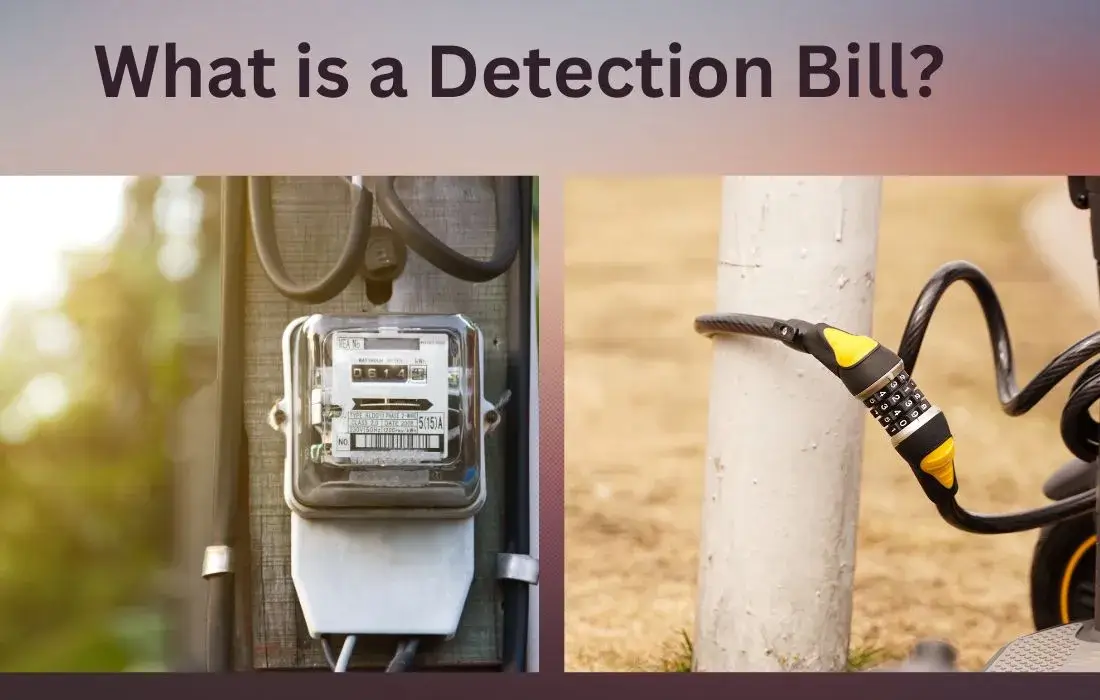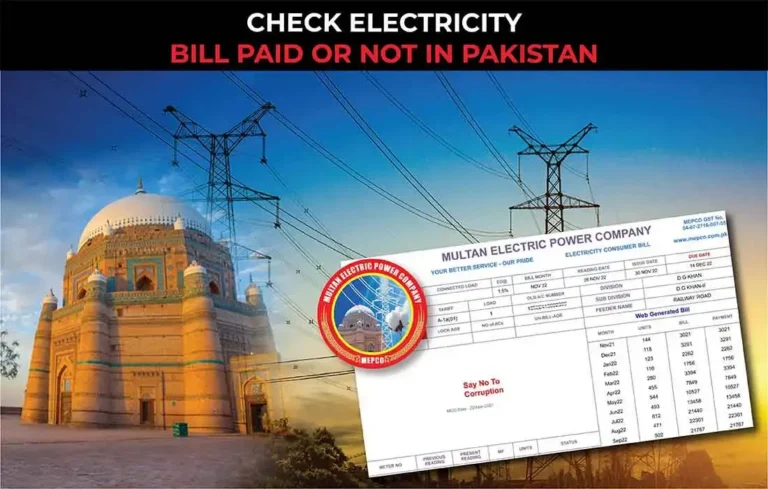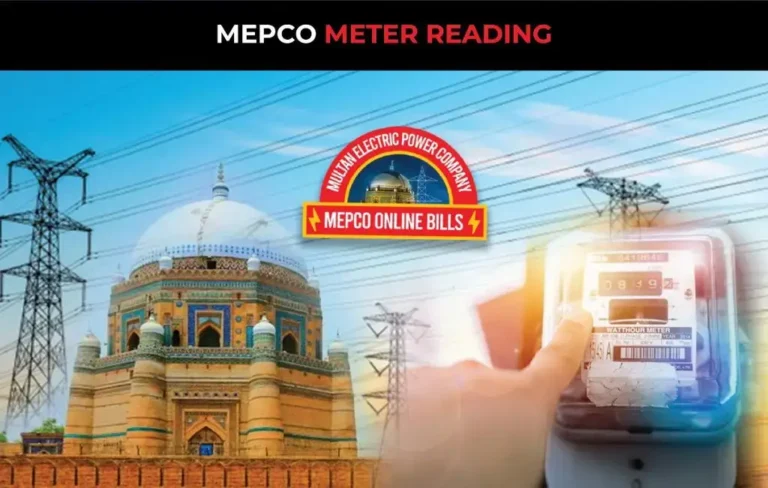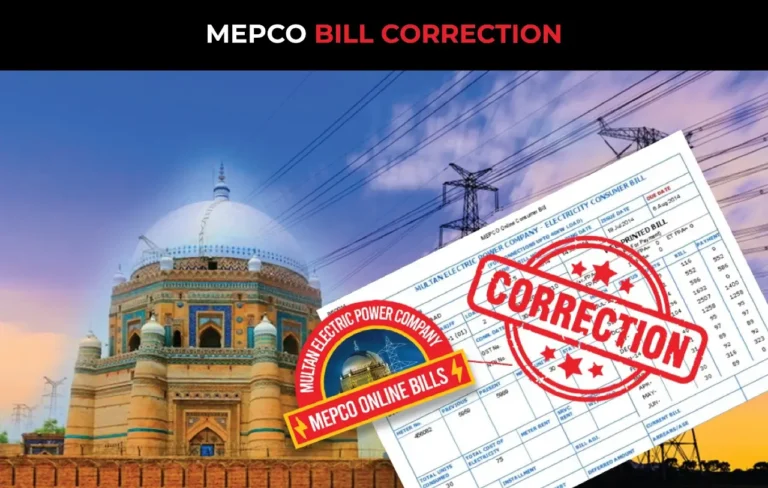What is Detection Bill Policy of WAPDA for MEPCO Consumers?

As per the Electricity Act 1910, if a person is found involved in the illicit act of power pilfering, whether through direct hooking or manipulation of an electric meter by inducing deliberate fault, the relevant authority is empowered to penalize him by sending a Detection Bill in addition to the regular billing.
However, sometimes, consumers may receive a detection bill by mistake due to technical or administrative glitches. In such a situation, they can challenge this additional billing in Civil Courts or the office of the Electric Inspector based on the way used in electricity pilfering.
Let’s understand WAPDA’s key policies and procedures regarding the detection bill MEPCO in detail!
What is Detection Bill?
A detection bill is issued as a penalty to electricity consumers suspected of being involved in illegal power theft or meter tampering. Water and Power Development Authority (WAPDA) in Pakistan sends assessment bills to consumers in addition to regular bill copies.
For details, check out the Detection Bill Policies in PDF
Reasons to Serve Detection Bills to Electricity Consumers
According to Law, a detection invoice is sent to energy users for the following illicit activities of power pilfering:
Key Policies and Procedures: Complete Guideline
- Developing Loop or Shunt on the Terminal box
- Meter tampering
- Creating a Hole in the electric meter
- In case of slowed meter (more than 2%), checked by the M & T staff
- Direct Kunda or Hooking
The Electricity Act 1910 devised the following key policies and procedures to be followed by the competent authorities for serving the detection bill to consumers:
Detection Billing on Account of Power Pilferage
- The Detection Bill for the illegal usage of electricity will be prepared on the Performa attached as annex-A.
- As per sections 39 and 39-A of the Electricity Act, a notice will be served to the suspected individual at Performa annex-B before charging him a penalty.
- The provisions of Sections 26-A, 39, 39-A, and 48 of the Electricity Act 1910 shall be compiled to prepare a detection bill copy.
Bill Penalty Due to Direct Hooking
Sections 39 and 39-A of the Electricity Act state that if a person illicitly connects his electrical devices or appliances to steal energy, an FIR will be filed against him to compensate the company’s loss. Moreover, an Assessment (Detection) bill will also be served to the suspected consumer in accordance with S-26-A of the Act, and the owner of the residence will pay this bill amount in addition to the monthly billing invoice.
Faulty or Slow Meter
- The malfunctioning of an electric meter can be identified with the help of an appropriate testing device by WAPDA’s employees. Also, it is necessary to analyze the meter slowness issue for 1-2 months before issuing of the penalty invoice. Suppose the energy meter is found to be deliberately slowed down by implementing some illegal practices. In that case, the owner will pay the detection amount until he replaces his meter on a priority basis.
- The detection bill formula will be based on the time period and amount of energy consumed illegally by meter tampering. The relevant officials will determine this amount after getting the report of the testing device from surveillance teams.
Approval of Detection Amount
- Load Sanctioning Authority will approve the detection charges to be fined by the Chief Executive Officer (CEO) to the consumer.
- Only the Load Sanctioning Authority and CEO are the competent authorities to approve a detection bill recommended by the Surveillance Team.
Accountability
Upon receiving a request by the detection agencies for more than 3 months, the competent authority will ask for fixation of responsibility for negligence in this matter. But, the CEO will not hold the fixation of responsibility.
Serving Consumers a Detection Bill
The concerned Revenue Officer will serve the additional penalty bill to the consumer after the approval of the competent authorities. The details of the assessment bill, carrying invoice amount, and reason for penalty will be saved online by the Revenue Officer via an input form.
Therefore, a separate bill will generate detection charges besides a regular bill copy. The next month’s bill copy would contain this amount as arrears.
Moreover, only the Revenue Officer can issue detection bills to the suspected. Therefore, manual preparation of such billing is not recommended.
Bill Revision
In case of any ambiguity or fault in the detection bill, only a Review Committee can reconsider or approve the revision request and take disciplinary action against those who previously prepared the wrong billing.
The committee members include:
- To Review Assessment Bills Approved by XEN
| Superintending Engineer (SE) | Convener |
| Circle Manager (M & T) | Member |
| XEN Concerned | Member |
- To Review the Detection Bill Approved by SE or CEO
| DISCO’s Chief Executive | Convener |
| Regional Manager (M & T) | Member |
| SE | Member |
Disputes on Detection Billing
As per the Electricity Act 1910 and Electric Power Act 1997, Electric Inspectors are not entitled to assume jurisdiction for handling consumer complaints. Further, the detection bill amount will be included in the current month’s electricity bill as arrears except if the competent authority suspends its recovery.
For more information: MEPCO Bill Correction Process
Detection Bill Recovery
In case of non-payment of a detection bill, the WAPDA’s existing procedures for recovery, including disconnection of the electric meter, will be followed.






